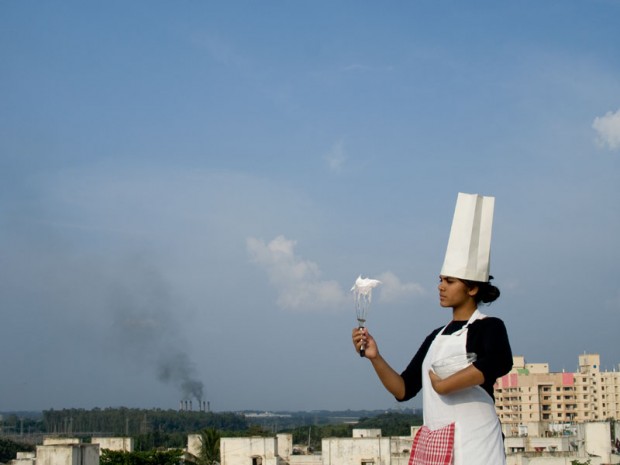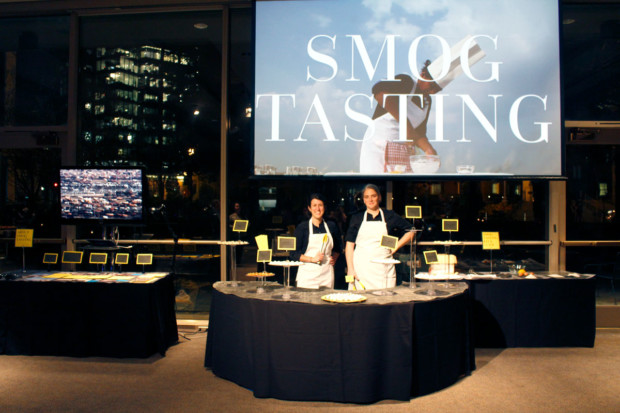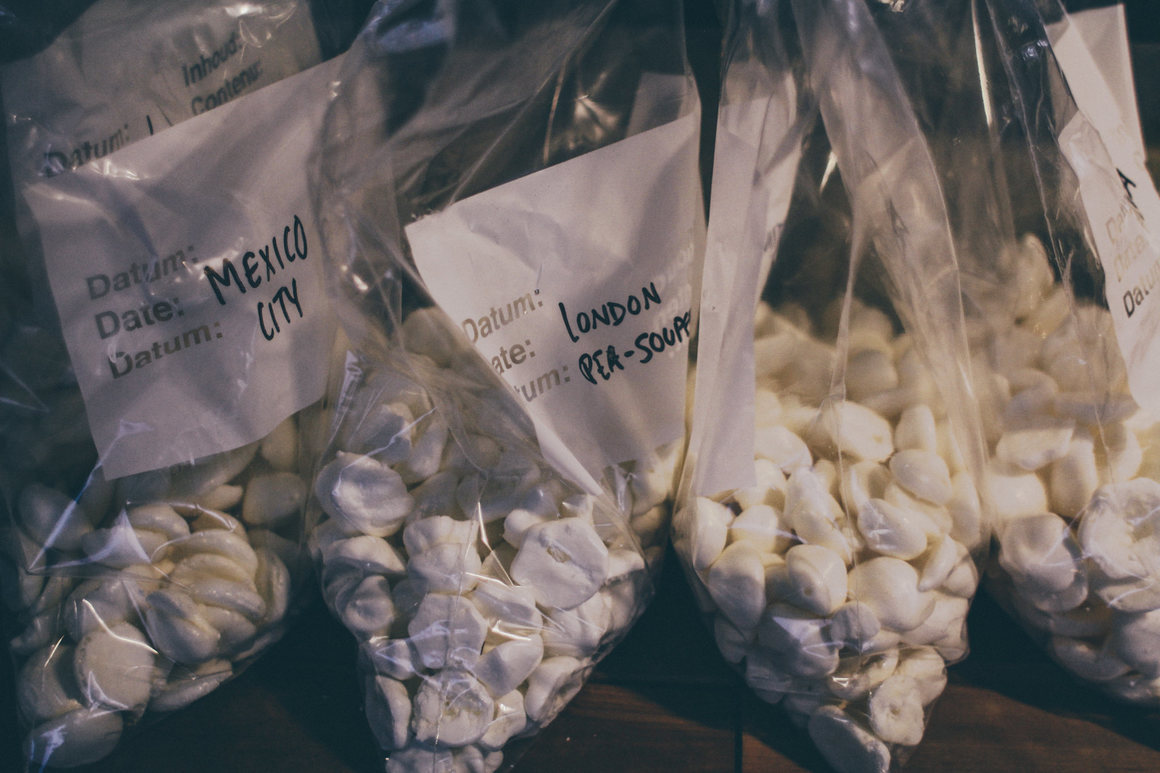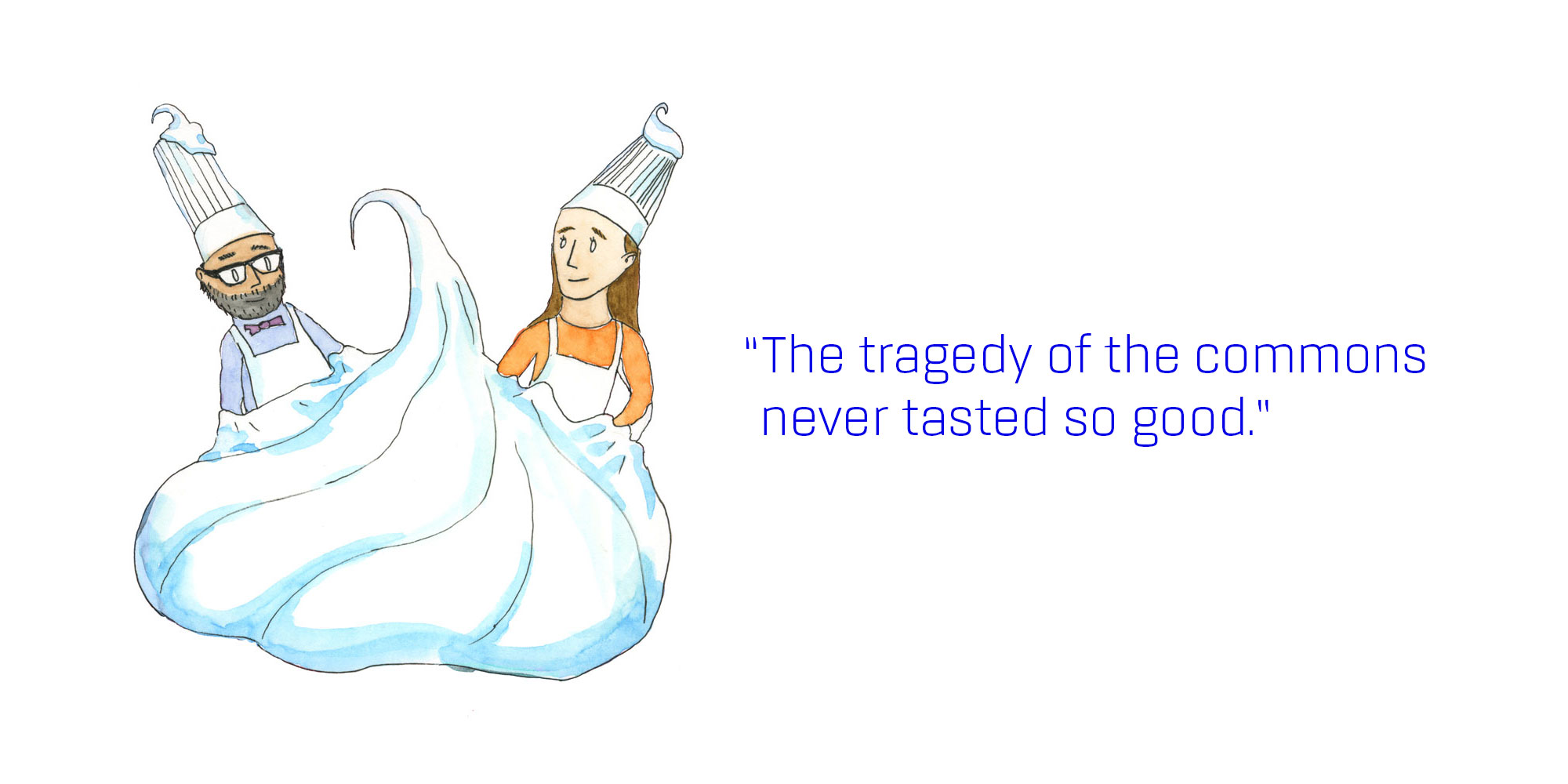What if we could bake our way to cleaner air?
The Center for Genomic Gastronomy’s Smog Tasting project provides a recipe for cleansing the toxic palettes of our cities.

Whipping smog meringues in India. Photo courtesy of the Center for Genomic Gastronomy
Does Mumbai taste different than London or Beijing? The Center for Genomic Gastronomy’s Smog Tasting Project puts our taste buds to the test by whipping up a bowl full of eggs. Originally created in partnership with the World Wildlife Fund for the 2017 Fuller Symposium in Washington DC, participants in Mumbai, London, Porto, Perth, Barcelona and Washington DC were sent a Smog Tasting Kit and asked to capture their city’s air pollution in the batter of meringue cookies.
Part scientific study, part conceptual art, Smog Tasting Project maps air quality by enabling us to tangibly compare highly polluted areas. Composed of up to 90% air, egg foam traps local air —and any pollution it contains—in the batter, which can then be tested for heavy metals and volatile organice compounds (VOCs). What began as a research project into biosensors (plants and animals that can help us track environmental health) turned into a participatory bake-off where smog-infused cookies can be baked, served and compared as mouthwatering sweets.

Smog Tasting at the Fuller Symposium in Washington DC, photo courtesy of Martha Stevenson
Why it Moves us, Forward
According to Zack Denfeld and Cat Kramer, founders of the Center for Genomic Gastronomy, “There is a lot of good work being done with digital air quality sensors, but this is a much more low-tech, playful and evocative way of making something that is persistent and in the background more concrete and visible.” That reflexive reaction of disgust after tasting a tailpipe can bring the point of air quality home much more poignantly than any EPA report ever could. By relying on our senses, we walk away with a more visceral understanding of pollution’s assault on our bodies, and new fodder for savoring and saving our health.

Smog meringues capturing the flavors of the world, photo courtesy of the Center for Genomic Gastronomy
Where can we go from here?
The Center for Genomic Gastronomy uses Smog Tasting Project in workshops with students and community groups to taste, test and compare levels of pollutants across cities. It has been served up to politicians, civic leaders and business owners for blind taste tests of the air quality in their cities. Yet the project’s real potential presents itself on international stages like COP 21 (the United Nations Climate Change Conference). Imagine a Great British Baking Show-type competition where cities around the world compete every year for the top award of most delectably pure meringue by actively working with their citizens to reduce pollution emissions. Imagine the winning city sending a free box to its citizens as a tasteful thank you for their playful participation in purifying the air they all depend on.
Creative Explorers: Zack Denfeld & Cathrine Kramer

Denfeld and Kramer founded the Center for Genomic Gastronomy in 2010 as an artist-led think tank that partners with scientists, chefs, hackers and farmers to examine the biotechnologies and biodiversity of human food systems. The Center’s mission is to map food controversies, prototype alternative culinary futures, and imagine a more just, biodiverse & beautiful food system. The Center has presented its research through public lectures, research publications, meals and exhibitions in Europe, Asia and North America.
More Tasty Morsels
With Smog Meringue’s you can Taste your City’s Air Pollution | Atlas Obscura
Glowing Sushi, Smog Meringues and Food Phreaking | MOLD Magazine
We Have Always Been Biohackers | Science Gallery Dublin
Reconnecting Taste and Place | School of the Art Institute of Chicago